
This article is more than
1 year old
Hezbollah’s deputy leader has said the group will keep up the fight against Israel in support of Palestinians in Gaza and is ready for a postured IDF ground offensive into Lebanon.
Hezbollah deputy secretary-general Sheikh Naim Qassem thought to be the current highest-ranking leader of the paramilitary group, made the group’s first address at 7pm (AEST) since an Israeli strike killed leader Hassan Nasrallah.
Qassem made several key assertions during the televised address including that Nasrallah was killed with four others.
He also said a new Hezbollah chief would be chosen “at the earliest opportunity” and that the group is ready for an anticipated Israeli ground offensive.
“Our operations have continued at the same pace, and more, since his killing,” Qassem declared, as translated by Reuters.
“We are doing everything we can, we are dealing with the assassinations of forces with alternative forces.
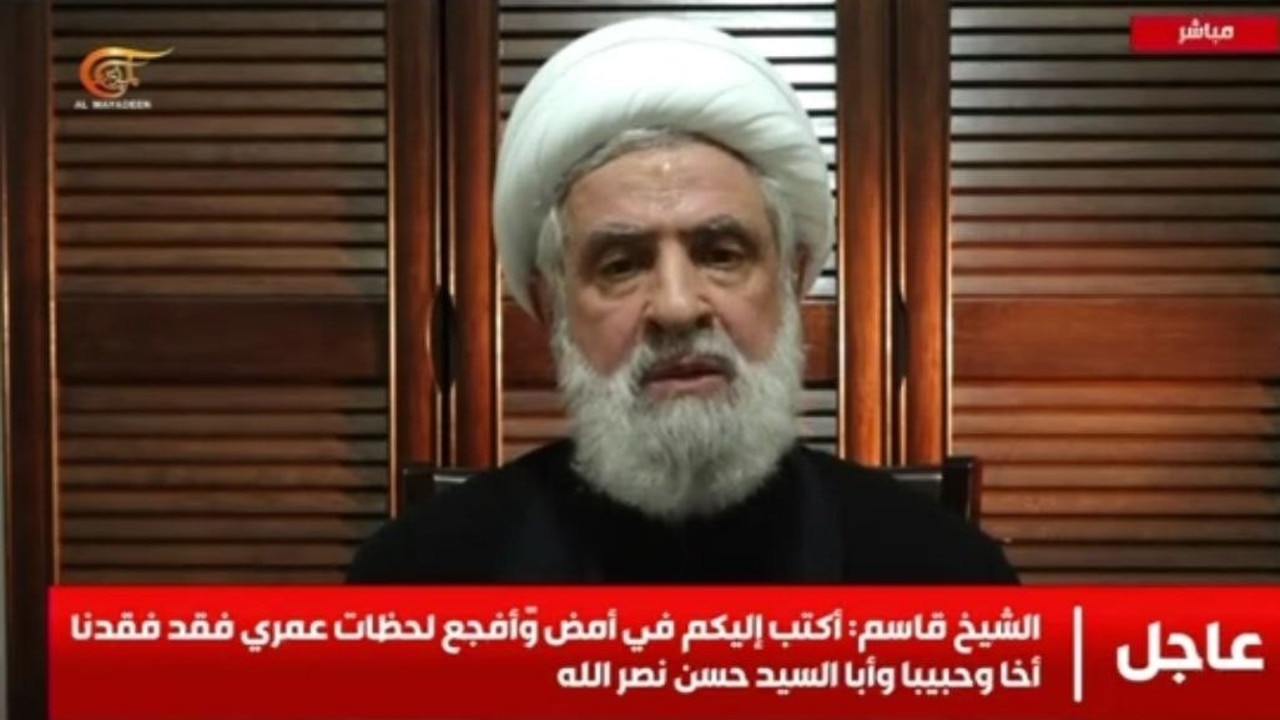
“We know that the battle may be long. We will confront any possibility and are ready if Israel decides to enter by land. Hezbollah’s forces are ready for a ground incursion.”
“We will not move from our positions, will continue facing the Israeli enemy to support Gaza and Palestine.”
Qassem also directly addressed the United States and its “limitless support” for Israel, which he claims has been carrying out “massacres”.
‘100k’: Grim figure amid Israel’s barrage
The United Nations has confirmed that around 100,000 Lebanese and Syrian nationals have fled to Syria from Lebanon due to Israeli air strikes.
“The number of people who have crossed into Syria from Lebanon fleeing Israeli air strikes – Lebanese and Syrian nationals – has reached 100,000,” Refugee Chief Filippo Grandi said on X, adding that “the outflow continues”.
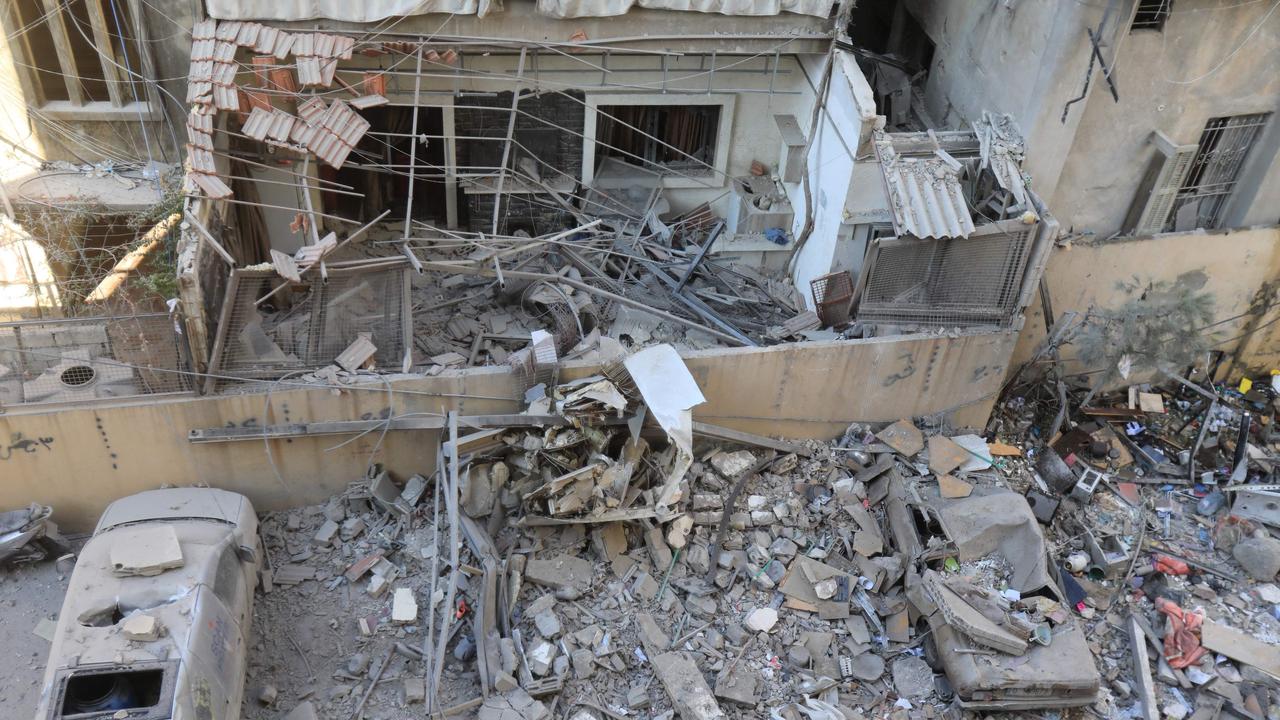
The grim statistic comes as Hezbollah’s deputy chief plans an address at noon 7pm (AEST Monday) via the Lebanese group’s Al-Manar television channel.
It will mark the first such speech since an Israeli strike killed leader Hassan Nasrallah.
“Watch the speech of his eminence Hezbollah deputy secretary-general Sheikh Naim Qassem at 12:00pm Beirut time,” Al-Manar announced. Details of Nasrallah’s funeral have not yet been officially announced.
High-ranking Hamas leader killed in strike
Relentless Israeli strikes into Lebanon have eliminated yet another key opposition figure, this time a high-ranking member of Hamas.
The Palestinian militant group confirmed its leader in Lebanon was killed hours ago in a strike on the country’s south, as official media reported a strike on a Palestinian refugee camp.
“Fatah Sharif Abu al-Amine, the leader of Hamas … in Lebanon and member of the movement’s leadership abroad” was killed in an air strike on his “home in the Al-Bass camp in south Lebanon”, a Hamas statement said this afternoon (AEST).
It said he died alongside his wife, son and daughter in a “terrorist and criminal assassination”.
The official National News Agency reported an air strike on Al-Bass near the city of Tyre, saying it was the “first time” the camp had been targeted.
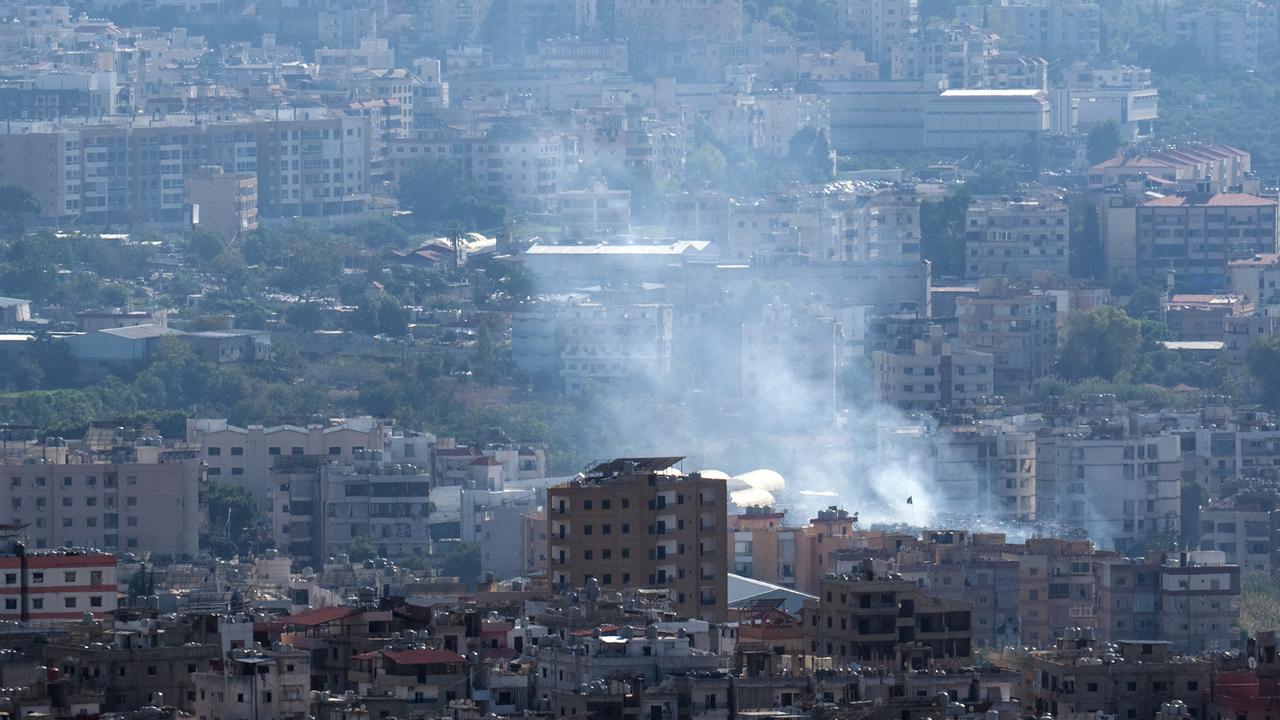
The statement came hours after the Popular Front for the Liberation of Palestine (PFLP), a secular left-wing group, said three of its members were killed in a strike on Beirut’s Kola district early Monday.
Israel has repeatedly targeted Hamas officials in Lebanon since the Gaza war erupted almost a year ago.
A strike in January, which a US defence official said was carried out by Israel, killed Hamas deputy leader Saleh al-Aruri and six other militants in Hezbollah’s south Beirut stronghold.
In August, an Israeli strike on a vehicle in the south Lebanon city of Sidon killed Hamas commander Samer al-Hajj.
Lebanon’s official Palestinian refugee camps were created for Palestinians who were driven out or fled during the 1948 war at the time of Israel’s creation.
By longstanding convention, the Lebanese army stays out of the camps and leaves the Palestinian factions to handle security.
‘Army is ready’: Sign invasion is imminent
Hundreds of Israeli tanks have massed at the country’s border with Lebanon, in the clearest sign yet that it is preparing to escalate its attacks on Hezbollah with a ground invasion.
The Times of London reports that hundreds of Merkava IV class tanks, along with various support vehicles, have been seen gathering in a field close to the northern Israeli border.
There has not been a ground invasion of Lebanon since Israel and Hezbollah fought each other to a stalemate over the course of a month in 2006.
“Now there’s not a chance in hell we’ll let them sit on our border,” one British-Israeli man, Yuval, told The Times.
“We let them build up again on our border after 2006 and that was a mistake.
“The world doesn’t like conflict but whether it’s with air strikes or an invasion, we need to move them. The soldiers are ready, the tanks are ready. We know they’re waiting for us.”
The United States has made another, perhaps last-ditch appeal to Israel not to proceed with a full-scale war, warning that it will not help Israelis displaced from their home sin the north by Hezbollah’s rocket attacks.
“An all-out war with Hezbollah, certainly with Iran, is not the way to do that,” White House national security spokesman John Kirby said today.
“If you want to get those folks back home safely and sustainably, we believe that a diplomatic path is the right course.”
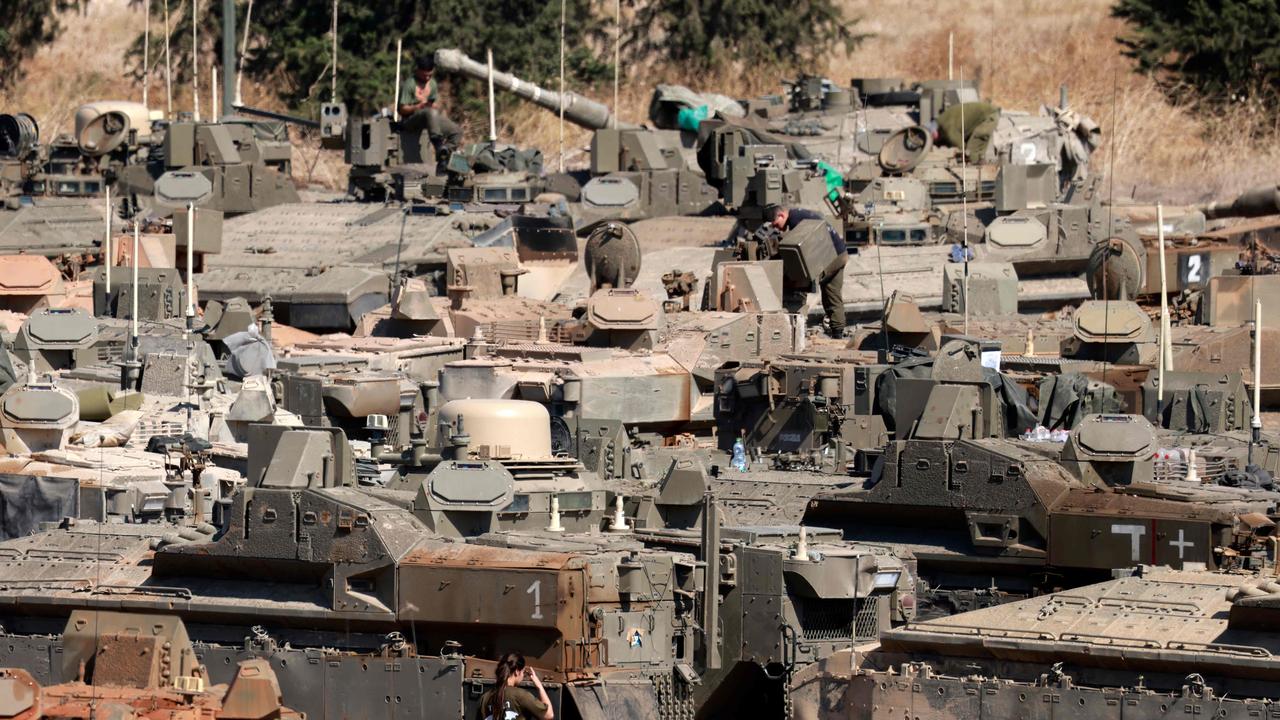
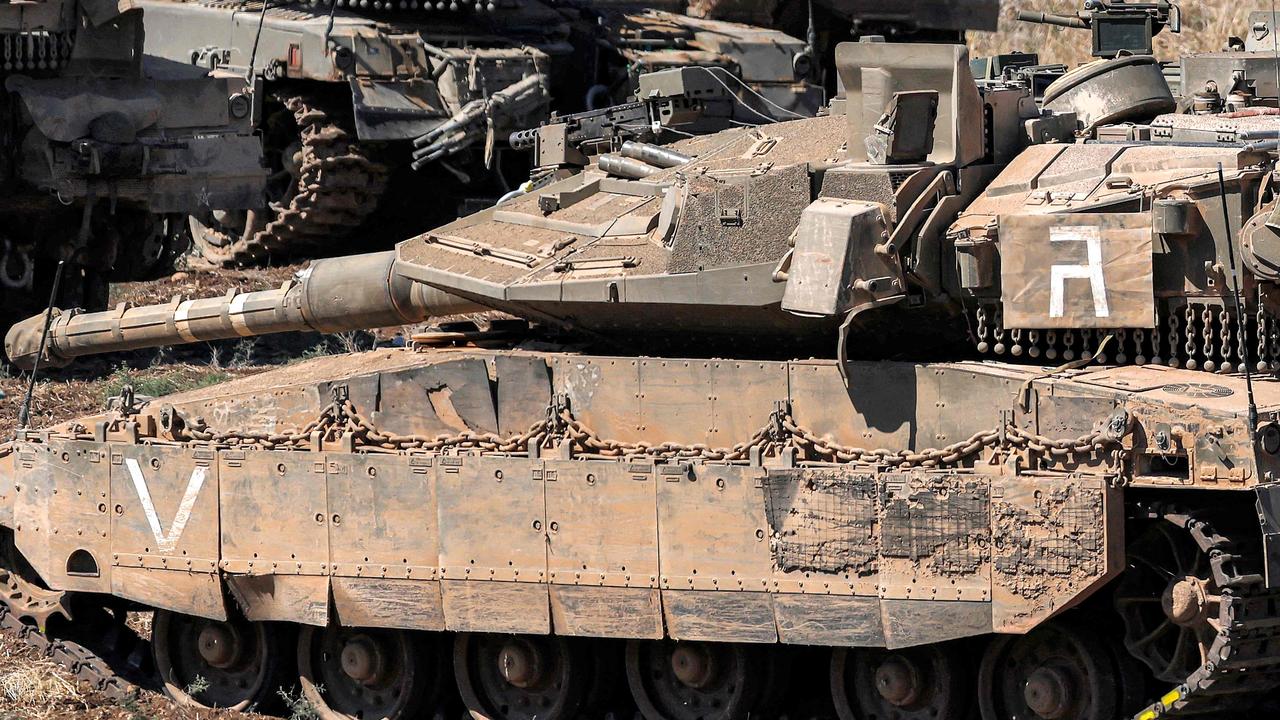
Mistake that exposed Hezbollah’s leader
It comes after the lethal strike against the head of Hezbollah, Sayyed Hassan Nasrallah, on Friday, which was reportedly the culmination of a years-long intelligence operation.
During its war against the Lebanese militant group in 2006, Israel tried and failed to assassinate its leader on three separate occasions.
On Friday, almost two decades later, the Israeli military finally succeeded, killing him with an air strike in the capital of Lebanon, Beirut.
Nasrallah was tracked to a bunker below an apartment complex in the city, and the Israelis dropped as many as 80 bombs to ensure his death.
After the unsuccessful attempts in 2006, reports The Financial Times, Israeli intelligence “dedicated itself” to penetrating Hezbollah, a political party and paramilitary group classified as a terrorist organisation by Australia and other Western nations.
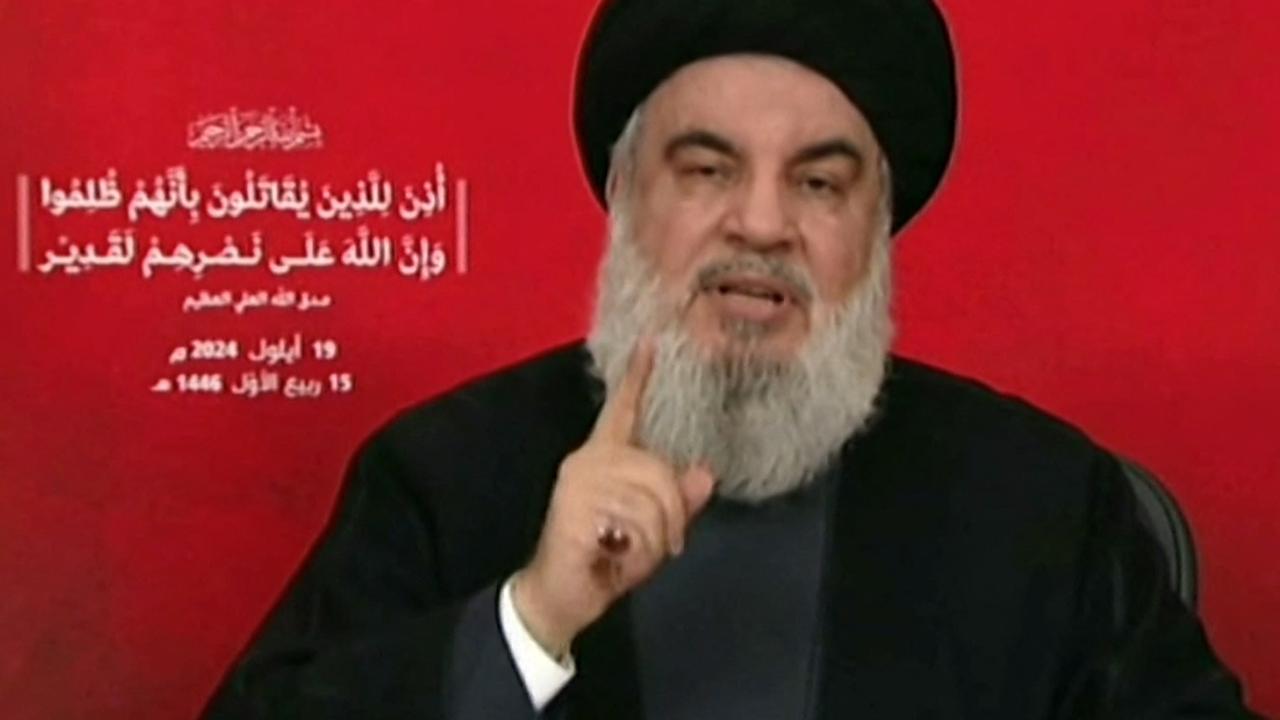
Israel’s “big break” with intelligence gathering, came in 2012, when Hezbollah sent fighters to help Syrian dictator Bashar al-Assad in his deadly conflict against his own people.
Hezbollah itself unwittingly helped Israel gain information by publishing personal details about its casualties in the war, information it used to build up knowledge of militants’ movements, and of the terror group’s power structure.
“They went from being highly disciplined and purists to someone who let in a lot more people than they should have,” Yezid Sayigh, a fellow at the Carnegie Middle East Centre, told the British newspaper.
“The complacency and arrogance was accompanied by a shift in its membership. They started to become flabby.”
Israel profiled Hezbollah operatives, including some high up in the organisation, who would attend the funerals of fighters.
The intelligence service, Aman, also hacked into militants’ devices, or sometimes those of their family members, and tracked their movements.
And it managed to track Hezbollah leaders by hacking into Lebanese surveillance cameras.
“Syria was the beginning of the expansion of Hezbollah,” added Randa Slim, from the Middle East Institute in the United States.
“That weakened their internal control mechanisms and opened the door for infiltration on a big level.”
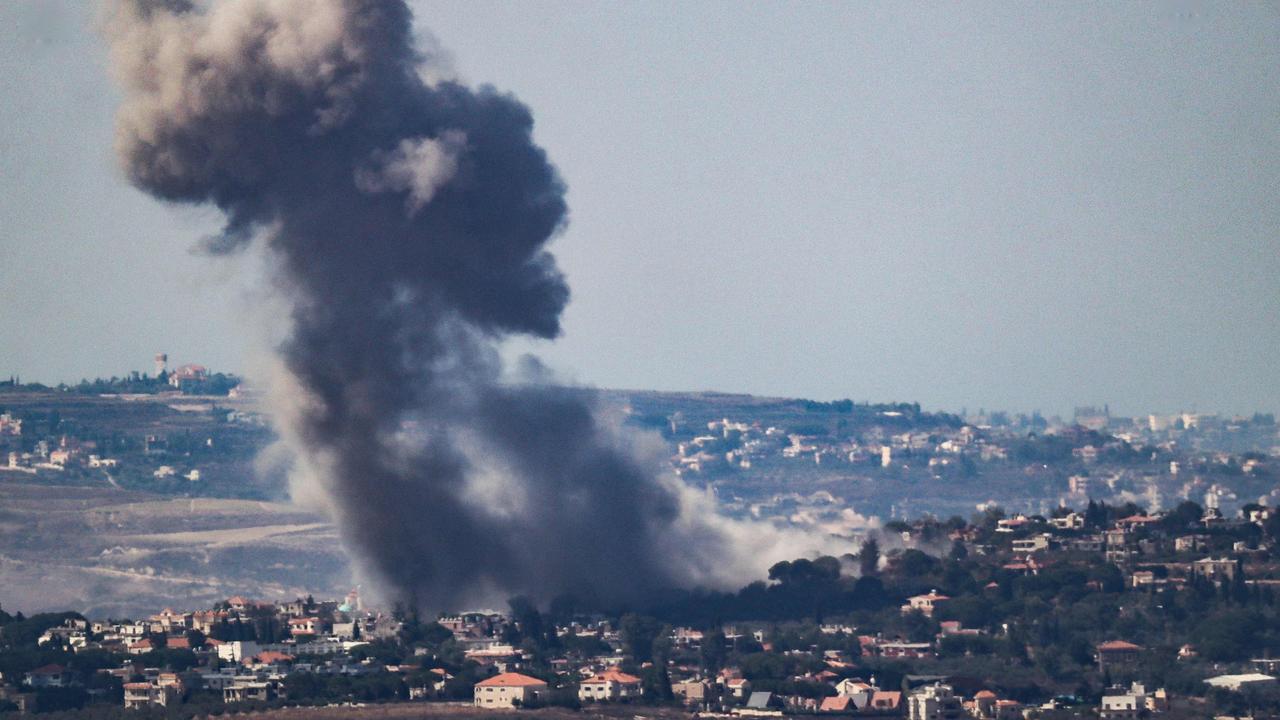
Somewhat ironically, given his own need for aid is what exposed Hezbollah in the first place, Assad has been among those condemning the Israeli strike that killed Nasrallah.
“The resistance does not weaken with the martyrdom of its leader, but rather remains firmly rooted in the hearts and minds,” the Syrian dictator said.
“Great leaders build in their lives the doctrine of struggle, its approach and its path, and they depart leaving behind them an intellectual system and a practical approach to resistance.
“We are certain the Lebanese national resistance will continue on the path of struggle and justice in the face of the occupation (of Gaza), and will continue to support the Palestinian people in their struggle for their just cause.
“Martyr Nasrallah will remain in the memory of the Syrians, as a sign of loyalty to his standing by Syria in its war against the tools of Zionism, despite the burdens of confrontation that he carried.
“At the heart of this loyalty, the name of Martyr Hassan Nasrallah will remain immortal.”
The so-called “tools of Zionism” here were Syrians who rose up against Assad’s government, and were violently put down, including through the use of illegal chemical weapons.
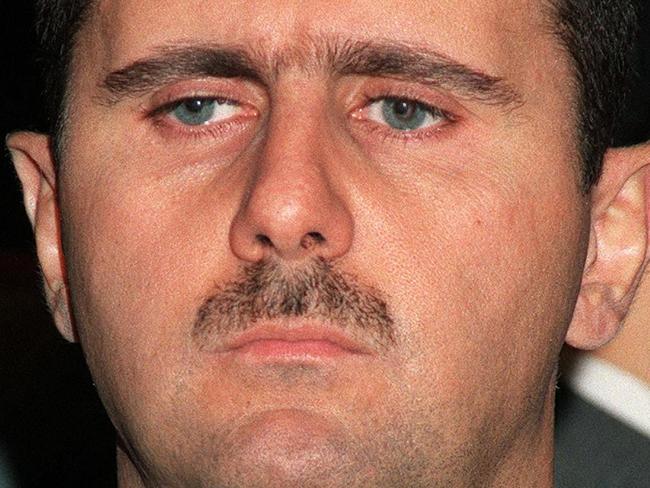
On the other side of the world, the United States confirmed it did not have prior knowledge of Israel’s intention to strike against Nasrallah.
Admiral Kirby, the White House’s national security spokesman, said Israel informed President Joe Biden once its planes were already in the air and on their way towards their target.
“We certainly assume there have been civilian casualties,” Admiral Kirby said.
“I don’t think we can quantify it right now.”
He reiterated the United States’ “ironclad” support for Israel.
Fears of ‘conflagration’
According to the Lebanese healthy ministry, Israeli strikes killed more than 100 people on Sunday, local time. The toll stands at 105 dead, with 359 others injured.
Israel has also expanded its campaign to encompass targets in Yemen, located to the south of Saudi Arabia.
Lebanon said it had suffered deadly attacks near its biggest southern city, Sidon, while dozens more had died in the east, south and in Beirut.
According to The Times, one strike hit the city’s Kola intersection, a major transport hub.
France, who saw one national die in the day’s strikes, urged both Hezbollah and Iran to avoid any action that could lead to a “regional conflagration”.
Israel says the air strike that killed Nasrallah also claimed the lives of 20 other Hezbollah militants. Earlier strikes killed Nasrallah’s right-hand man, Fuad Shukr, and the head of the elite Radwan Force, Ibrahim Aqil.
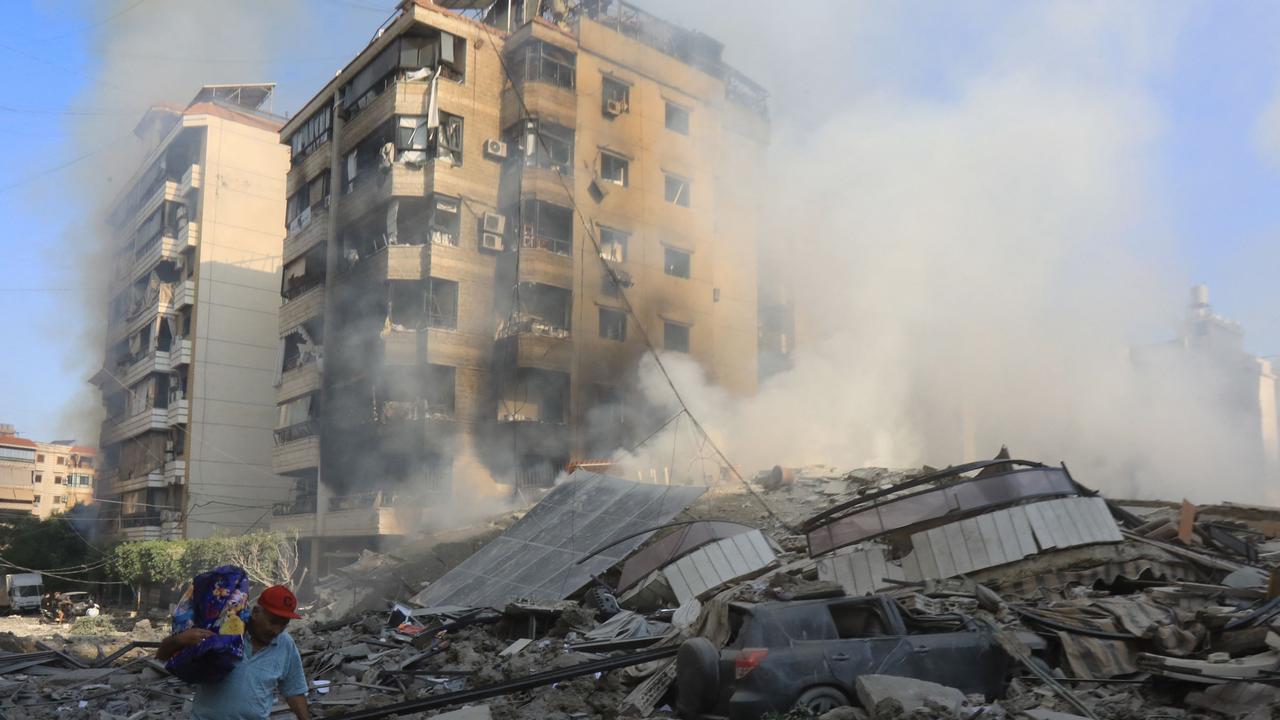
Israeli bombardment has killed more than 700 people in a week, including 14 paramedics over a two-day period, according to Lebanon’s health ministry.
Israel’s military said late on Sunday that it had hit 120 Hezbollah targets. Meanwhile Hezbollah said it had again fired rockets at the northern Israeli town of Safed.
Mr Biden’s stance remains that a wider war in the region “really has to be avoided”.
Saudi Arabia has also expressed its “great concern” regarding the conflict in Lebanon, calling for the country’s “sovereignty and territorial integrity” to be respected.
A foreign ministry statement said: “The kingdom of Saudi Arabia is following with great concern the developments taking place in the Republic of Lebanon.
“The kingdom calls on the international community to assume its responsibilities towards protecting regional peace and security to spare the region and its people the dangers and tragedies of wars.”
There have been growing calls internationally for restraint from Israel as it prepares for a possible ground offensive against Hezbollah.
– with AFP